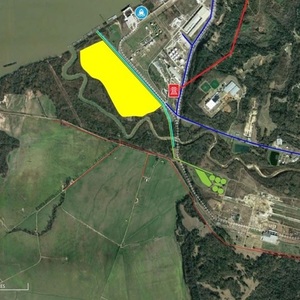Environmental assessment results good for Velocys' Miss. project

Photo: Velocys plc
August 7, 2018
BY Velocys plc
Velocys plc announced Aug. 7 that the USDA has issued a Finding of No Significant Impact on the environmental assessment report for Velocys’ planned Bayou Fuels biorefinery in Natchez, Mississippi. With the FONSI process completed, Velocys will now focus on the next steps in the project’s development, including securing the state-level permits that will be required to construct and operate the biorefinery.
The 160-page environmental assessment report details the impact of the proposed facility across 15 potential aspects, including land use, water resources, air quality, wildlife, visual impact, noise, transport and public and occupational health. In each case, the report concludes the plant would have “none”, “none to minor,” or “minor” impacts during construction and operation.
Advertisement
Advertisement
The FONSI was issued as part of Velocys’ ongoing development of a 100-acre site in Natchez that the company secured in October. The site will be home to a pioneering biorefinery that will use Velocys’ innovative technology to produce low-carbon transportation fuels from the wood wastes of lumber operations and tree plantations. The plant is expected to convert locally sourced woody biomass waste into enough renewable fuel to meet the demands of running around 40,000 diesel and gasoline trucks.
No opposing or negative comments were filed as part of the USDA’s public consultation process.
“This is a significant step in the permitting of the Bayou Fuels biorefinery as well as an important milestone for the overall development of the project,” said David Pummell, CEO of Velocys. “The environmental assessment provides independent confirmation that the project will not give rise to any significant environmental impacts and reflects our commitment to responsible and safe project development.”
Advertisement
Advertisement
Chandler Russ, executive director of economic development for Natchez/Adams County, said, “This is a great step forward for a project that is a natural fit for the local resource base and economy. The USDA assessment should ease considerably the process for obtaining additional permits, and other project development activities.”
Related Stories
The U.S. Energy Information Administration maintained its forecast for 2025 and 2026 biodiesel, renewable diesel and sustainable aviation fuel (SAF) production in its latest Short-Term Energy Outlook, released July 8.
XCF Global Inc. on July 10 shared its strategic plan to invest close to $1 billion in developing a network of SAF production facilities, expanding its U.S. footprint, and advancing its international growth strategy.
U.S. fuel ethanol capacity fell slightly in April, while biodiesel and renewable diesel capacity held steady, according to data released by the U.S. EIA on June 30. Feedstock consumption was down when compared to the previous month.
XCF Global Inc. on July 8 provided a production update on its flagship New Rise Reno facility, underscoring that the plant has successfully produced SAF, renewable diesel, and renewable naphtha during its initial ramp-up.
The USDA’s Risk Management Agency is implementing multiple changes to the Camelina pilot insurance program for the 2026 and succeeding crop years. The changes will expand coverage options and provide greater flexibility for producers.
Upcoming Events










